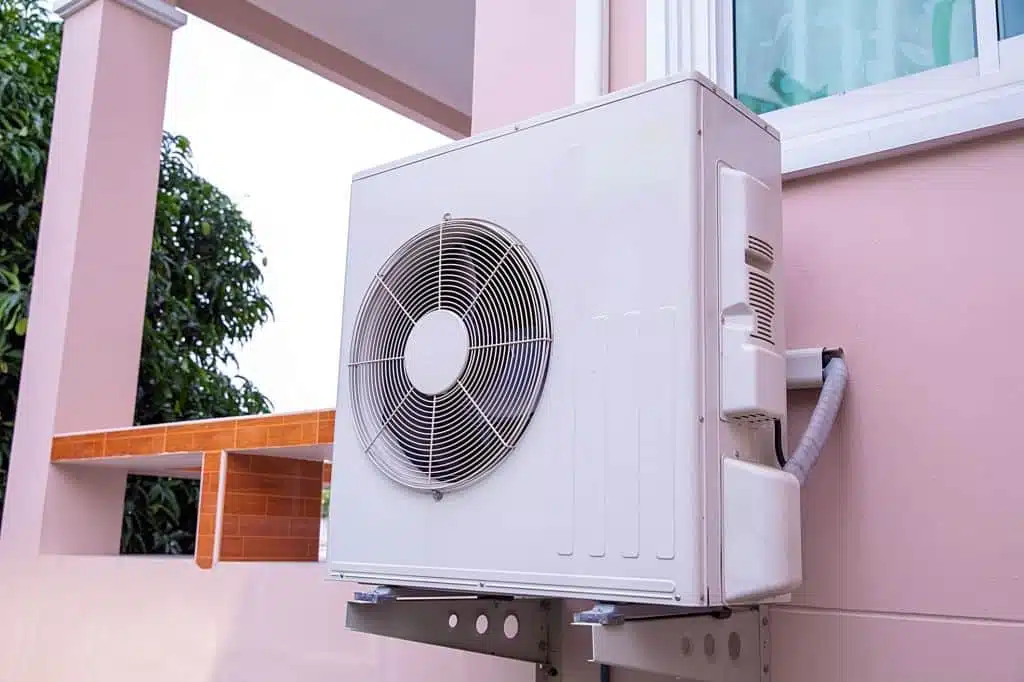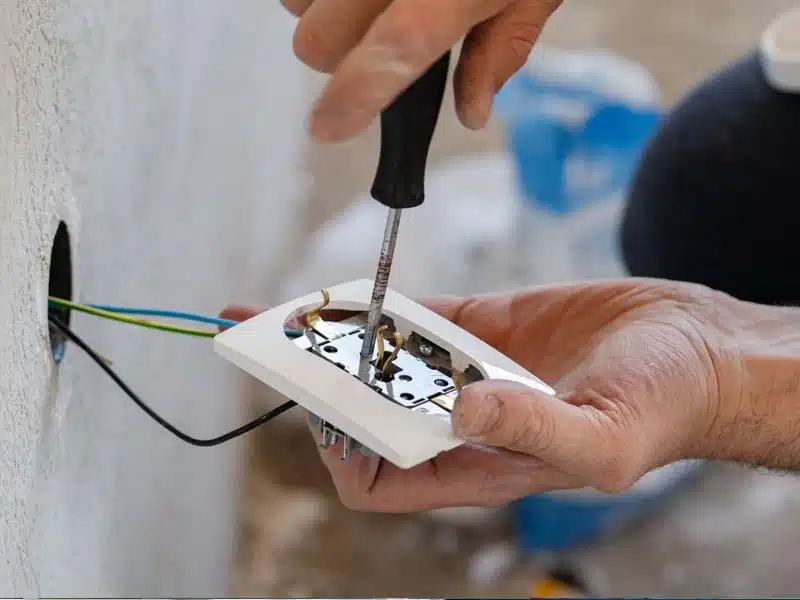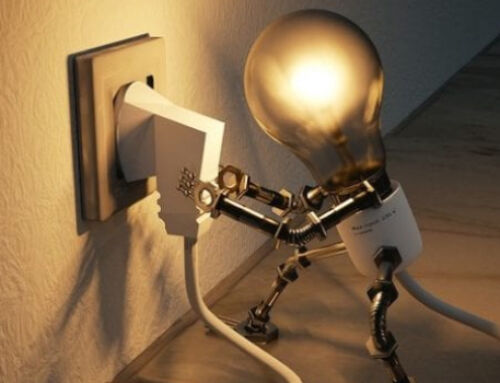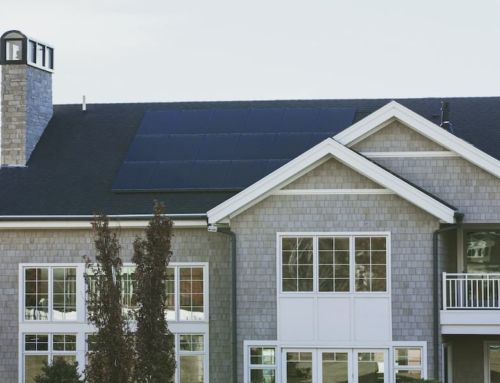Every household in the world relies on a variety of electric components to function. However, many people have little understanding of what these are, how they work and what their function is.
It’s important that you at least have some electrical installation basics knowledge in your household. You’d be surprised how often this will come in handy, and it may even help keep you safe in an emergency one day.
Your home’s electrics are important, so when it comes time hire an electrical service, you need to find the right person for the job.
It doesn’t matter if it’s a small repair or a major extension, getting the job done right will mean all work is completed safely and accurately, and you won’t have to worry about asking for a second call out.
No matter how big or small the job at hand, when it comes to electrical installation basics, maintenance, inspections and repairs, it is important to work with a trusted provider.
Here at HunterCON, we provide fast and efficient services to our valued customers, and we always strive to tailor solutions to your needs.
Understanding The Electrical Installation Basics and Components In Your Home
Understanding the basic electric parts and components in your home is very important. Let’s take a look at what the meter box, circuits, fuse board and breakers do and how they work.
The Meter Box
When electricity is delivered to your home, it first goes through your electric meter box. This is what measures how many units of energy your household uses.
This is measured in kWh – kilowatt hours – and is what your energy provider uses to determine how much power you used during your billing cycle (and hence how much you will be charged).
You are charged by the number of total units used in a cycle, meaning the total kWh used. 1 kWh is the amount of watts used, multiplied by the number of hours used, divided by 1000.
For example, if you use a 1000W appliance for one hour every day, then the total kWh used by this appliance is one kWh per day. How much this costs you will depend on your energy provider.
Circuits
For energy to flow to light sockets and power points in your home, it needs to travel through a path or “circuit”.
It is called a circuit because it contains two wires: one that delivers electricity from the generator to the destination (this is ‘active’) and one that carries electricity back to the generator (this is ‘neutral’), thus completing the “circuit”.
The Fuse Board
The circuits delivering electricity to different parts of a house are all connected to single fuse board. This is the “brain” of the whole system.
When electricity is delivered to a house, it first flows through the meter box, then is carried to the fuse board.
From there it is distributed throughout the house via various circuits, hence why is it also called the ‘distribution box’.
There are not circuits for every powerpoint and lighting socket in a house, rather they are grouped into different categories (for example there may be one for your hot water system, one for your stove, three for your power points, and two for your lighting).
Circuit Breakers
Each circuit group has a switch, which are called ‘circuit breakers’. Labels will usually indicate which part of the house each switch controls.
In the event that a circuit is overloaded it could become very hot and pose the risk of starting a fire. The circuit breaker’s job is to stop this happening.
If the current flow exceeds the rated amp value of the circuit, the switch is opens, “breaking” the flow of the current, shutting the power off to that circuit in a extremely short amount of time, stopping any chance of an accident happening. The circuit can be connected again simply by closing the switch.
Main Breaker
The fuse board also has a “main breaker”. This is the first component that receives electricity after the meter box. This is kind of like the master power switch – if you need to shut off power for the entire house, simply flip this switch.
Trip Switch
The trip switch is a kind of master circuit breaker that monitors the flow of current through all wiring and disconnects the supply of electricity if it detects any abnormalities, from the tiniest imbalance (such as if a power board is overloaded) to large surges (such as during a storm).
If the amount of current flowing in is the same as the amount flowing out, the switches remain on. If there is an imbalance, the switch is “tripped” and the flow of current to the entire house is cut off.
4 Tips to Help You Hire a Good Electrician
It’s important to feel comfortable about the electrical service you plan on hiring and there are a few measures you can take to be confident that your house is receiving the right treatment.
Do Your Research
There are a few things you can research so that you can make sure that you are prepared to find the right person for the right job. You don’t have to be an expert, however, learning a little about the job and cost of the parts will help you to better deal with the electrical service.
It’s also a good idea to do a bit of a background check on any service provider you plan on calling. There may be references and reviews online that could give you a bit of an idea of the job you can expect.
Obtain a Quote
Before any work begins, it is a must that you receive a quote and agree on a price. It’s not abnormal to receive numerous quotes from different companies to compare prices.
Any business or contractor that pressures you to take the quote, start work early or don’t agree to you obtaining other quotes should not be trusted, as they do not have your best interests in mind.
Some electrical providers may even offer discounts to new customers in order to engage them long-term business, so be sure to shop around.
Insurance and Licensing
It is crucial that the provider that you hire has the appropriate insurance and licensing to carry out the work that needs doing.
This type of work is risky business and complications can mean damage to persons, as well as your own property, with extensive financial and legal ramifications.
Contractors should willingly provide you with the required details and if the service provider is part of a larger company it should be easy to check by calling the business and give yourself peace of mind.
Time Management
Time management is the sign of a skilled practitioner and is essential for electricians to complete their work in a given time frame. An electrician should provide a detailed timeline, along with an estimation of the cost of the job.
Like most things in life, the process may require a bit of adjustment, however, as you will be the employer, you need to factor in the timeframe and labour costs so that the project progresses to and continues to fit within your budget.
A good electrician should be able to keep you updated on the progress of the project every step of the way and stick to set goals and milestones, so make sure they have a good plan upfront.
Importance of Using a Certified & Qualified Installer
As with any trade, is extremely important to work with a certified and qualified electrician to ensure peace of mind during the entire process. If you do not, you place yourself, your family, your staff or your patrons at risk.
We are fully licensed specialists with a wealth of experience in all aspects of the industry. We’re located in Sydney, and we service the greater metropolitan area, including the Eastern Suburbs, Lower North Shore and South West.
What Types Of Electrical Services We Offer
Whether it’s for a new build, renovation or extension, we provide full service solutions for residential, commercial and industrial clients in the Inner West, Eastern Suburbs, Lower North Shore and South West of Sydney.
Electrical Installer
Our experienced team can install a wide range of electric components that may be required in residences, offices, business and industrial facilities, including:
● Powerpoints
● Light switches
● Dimmers
●Indoor lighting
●Switchboards, control panels and junction boxes
●Wiring
●Ceiling fans
●Outdoor and garden lighting
●Sensor lighting
●Bathroom electrics, including lighting, heating and exhaust fans
●TV antennas
●Telephones wiring
●Communications systems
●Emergency lighting
●Smoke alarms
●Security systems
Electrical Maintenance
Dealing with the maintenance can be quite stressful for homes and businesses. Ongoing developments in the design and overall quality of electric components have meant that systems can often run for many years without any issues.
However, problems do occur. And this is why having a fast, efficient maintenance expert on hand is very important.
Our maintenance services cover all aspects of assessing, fixing and replacing electric systems and components.
Every single job is of utmost importance to us, no matter the size. Whether you simply need smoke alarm changed, or an entire commercial switchboard repaired, we’re here for you.
Electrical Fault Inspection and Repairs
Electric faults are quite common, and they can be very frustrating, particularly when you cannot identify the issue.
They can also be downright dangerous, posing the risk of a fire and electrocution.
Faulty powerpoints, switches or sockets, old or damaged wiring, defective circuits and power surges are just a few of the reasons your system may not be working, and it is important to get in touch with an experienced and knowledgeable electrician to address the issue.
Our team of local electricians can safely inspect and repair your electric fault in no time. We are one of the most trusted providers in Sydney. Our team is nimble, and we understand that an electric fault is an emergency issue.
Rewiring or Wiring Repairs
Wiring is one of the integral components of an electric system. It is the source of power for all appliances, units and devices, and any issues can undermine the integrity of your system.
Whether your wiring is simply outdated, has been damaged (rodent damage is very common), or is faulty, we pride ourselves on the highest quality of workmanship when it comes to rewiring and wiring repairs.
Safety Checks
Our expert electricians are fully qualified to perform safety checks for both homes and businesses.
Safety inspections involve reviewing circuits and components to make sure they are not overloaded, assessing faulty earthing or bonding in older buildings, and assessing the overall condition of your electric system and whether it’s safe. If work is needed, we will advise you on the next step.
For businesses, safety checks are very important in order to comply with AS/NZS 3760:2010 standards. We provide comprehensive testing systems that utilise the latest technology, and we always provide hassle-free service that you can rely on.
Contact HunterCON Today!
If you have any questions regarding electricity in your house, or are looking for a quote for electrical installations, repairs, or general maintenance, please don’t hesitate to give us a call. With over 9 years experience under our belt, we pride ourselves on providing fast and efficient service of the highest quality. Get in touch with us today.







